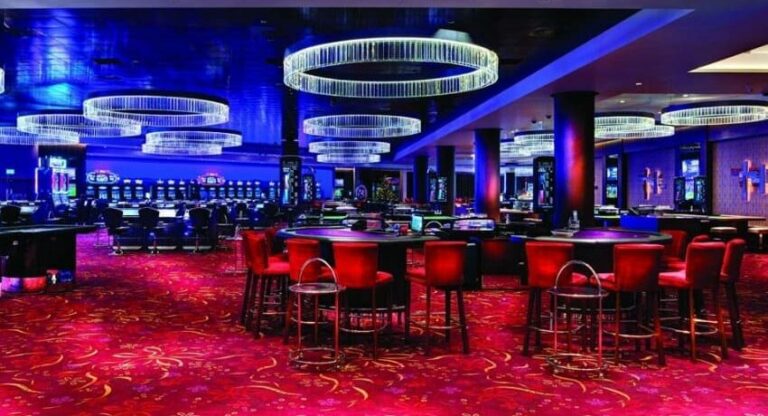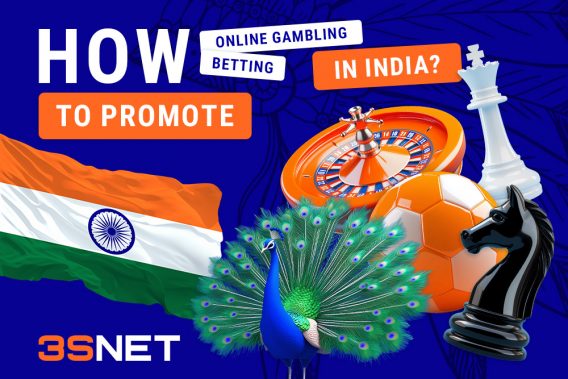
Publication date: 24 Jun 2021
Until 2006, gambling activities in Russia were regulated by the Tax Code and the Law on Licensing of Certain Types of Activities. Local authorities could independently decide whether to grant or prohibit the work of a particular company. From 2006 to 2009, at the initiative of the President of Russia, various draft laws were developed, the purpose of which was to restrict and control the industry. As a result, on July 1, 2009, the law was adopted prohibiting gambling in Russia. Only five special gambling zones are the exception. Online casinos in Russia have been banned. To be more precise, it is the organization of a casino that is prohibited. However, this wording immediately became a kind of “loophole”: the activities of casinos that are legal in other countries are not officially prohibited. After all, they have not organized their activities on the territory of other countries. Their sites are not always blocked, the owners must restrict access by ip for residents of those countries where gambling is prohibited. There is no ban on playing on the Internet for Russian citizens.
What laws administer the gambling market in Russia?
- Federal Law No. 244-FZ of 29.12.2006 “On state regulation of the organization and conduct of gambling and on Amendments to Certain Legislative Acts”.
- Order No. MMV-7-2/461 dated 18.05.2017 “On Approval of Criteria for Evaluating Materials and (or) Information Necessary for Decision-making by the Federal Tax Service”.
- Federal Law No. 38-FZ of 13.03.2006 (as amended on 30.04.2021) “On Advertising”. Article 27. Advertising of risk-based games, betting.
- Resolution No. 127 of the Federal Service for Supervision of Communications, Information Technologies and Mass Communications (Roskomnadzor, RCN) regulates centralized network management, including interaction with services and resources that allow access to prohibited content.
Any gambling activity that is carried out without obtaining a license is illegal in Russia. Only land-based casinos and gambling halls can apply for a document.
- Bookmakers and sweepstakes have the right to work online in Russia. The legislation governing betting in Russia differs significantly from the laws for the operation of casinos.
The Federal Tax Service (FTS) of the Russian Federation is in charge of issuing licenses to casino operators in Russia. How to get a gambling license in Russia?
The games zones which are legal in Russia
Since 2009, only casinos that operate within the same gaming zone have been legal in Russia. As of June 2021, there are four gambling zones:
- Primorye (Far East, Primorsky Krai) — the zone is located 15 km from Knevichi Airport and 50 km from Vladivostok. The first casino “Tigre de Crystal” started working in 2015. Currently, investors from Russia, Hong Kong, Cambodia, South Korea, and China are involved in the organization of gambling. Initially, it was planned that about 80% of casino visitors would be from neighboring countries of East Asia, for which there is a simplified visa regime. As a result, only 30% of the players were foreigners, the remaining 70% were Russians. A sum of about 3 billion rubles from the Russian budget was invested in the construction of engineering and transport infrastructure. At the same time, over the five years of its existence, the gambling zone brought only 1.4 billion taxes to the budget. However, in 2020, the situation changed: due to the pandemic, casinos could not function at full capacity, about 50 million rubles of taxes were transferred in the first six months with a plan of 133 million rubles. As a result, from July 1 until the end of 2020, casinos in Primorye received tax benefits, and the budget-a deficit of 23.3 million rubles.
- “Siberian coin” (Altai Territory) – the total area of the zone is 9.5 hectares. Since 2014, the only object operating here is the hotel and entertainment complex with the Altai Palace casino. At the same time, over 11 years (from 2008 to 2019), 800 million rubles were invested in construction alone. But taxes for the same period — only 300 million. And the trends are upsetting: in 2018 — 88.2 million, in 2019 — 72 million. 2020 figures were not found, but it is unlikely that the crisis and the pandemic triggered sector economy recovery. The prospects for the “Siberian coin” are vague. The main problem is the remoteness and poorly developed infrastructure: for example, the road to the only casino was paved only in 2018, before that it was crushed stone.
- The “Yantarnaya” (Kaliningrad region) zone is located 50 km from Kaliningrad. The first Magic Cristal slot machine hall was opened in 2016. In 2017, the largest casino in Europe, Sobranie, started operating. For three years, the owners paid 240 million rubles in taxes. At the same time, the company’s own losses for three years amounted to 122 million rubles. It is unknown how long such a business will be able to function for. The main disadvantage of the gambling zone “Experts call its location” Yantarnaya”: it is far away for Russians to play, and Europeans prefer their casinos-with more developed services and loyal laws. And you don’t need to get a visa!
- Krasnodar Territory – from “Azov City” to “Krasnaya Polyana”. In 2010, the first gambling zone “Azov-City”was opened in Russia. It was located in a sparsely populated area of Kuban, but there were many large cities nearby. The start was successful: three casinos (“Shambhala”, “Oracle” and “Nirvana”) and several hotels were immediately opened. The administration has invested 1 billion rubles in the construction of infrastructure. Investors planned to spend another 50 billion rubles until 2023. Over the years of its existence, residents of “Azov-City” managed to pay 2 billion taxes. But in 2014, Russia hosted the Olympics, and significant funds were invested in the construction of facilities in Sochi. In July 2014, Vladimir Putin signed documents authorizing the opening of a gambling zone here. And now the Russian legislation has come to the rescue! Only ONE gambling zone is allowed in one region. Thus, the Azov-City zone was closed from January 1, 2019 (taking into account the transition period allowed by law). The investors filed a lawsuit, but they did not receive compensation from the state. Since 2017, the Krasnaya Polyana zone has started working at the Gorki Gorod resort, the Sochi Casino and Boomerang have opened, as well as a large slot machine hall. In 2018, the amount of taxes from their activities to the Kuban budget was 708 million rubles, in 2019 — only 460 million, that is, the dynamics is clearly negative. And if we compare it with the data on the previously operating “Azov-City”, the situation is even sadder. The majority of visitors to Krasnaya Polyana are foreigners. But they need visas to visit Russia, and since 2020 the borders are generally closed… In addition, investors report another problem: not forecasted tax rates, due to which the land tax in Sochi may increase 16 times. Already, the authorities of the Krasnodar Territory are faced with the fact that payments for rent from the casino have to be received through the court. And if you further increase tax rates — it will finally kill the gambling business.
- According to officials in the Krasnodar region, in the first 6 months (January-June) of 2021, the Kuban casinos have paid 226 million rubles as tax. For comparison: during the same period in 2020, the taxes were 114 million rubles. Thus, there is almost a 100% increase in profits of the Krasnodar region casinos. It is expected that the three gambling facilities of Kuban, including “Casino Sochi”, will bring to the budget more than 424 million rubles in 2021 in total.
In the near future, the Russian authorities have planned the appearance of another gambling zone. In 2015, the Crimea was also included in the regions where gambling is allowed. In 2019, permits were signed for the organization of the Golden Coast gambling zone in Yalta. It will start working in 2024, a single complex with casinos, hotels, sports grounds, beaches and park areas will be built here. Investors are ready to invest 3 billion rubles in the construction. Initially, it was planned that tax deductions would amount to 25 billion rubles a year. But in 2020, the plans were revised to….1 billion Already at the planning stage, the “Gold Coast ” met with the objections of the local population. Families with children come to rest in this area, and not lovers of noisy recreation. Thus, the casino will kill the private sector and sharply reduce revenues.
How do the Russian authorities deal with illegal casinos?
Since 2012, Roskomnadzor, at the request of the court, the Federal Tax Service or other government agencies, has the right to block sites with online gambling. Such resources are deleted both by employees of the department and by complaints from citizens. The list of deleted sites can be found in the Unified Register of Prohibited Sites. The RCN may also require removing links to prohibited sites from search results, as well as from social networks or other Internet resources. On June 15, 2021, the Russian State Duma adopted a law allowing tax authorities to block the work of Internet resources that transfer funds for illegal gambling establishments. Banks, operators of payment systems and communications should adhere to the ban. The Federal Tax Service will compile a list of illegal organizations and payment service providers that work with unlicensed casinos. This list will be posted on the website of the tax authorities. In June 2021, Roskomnadzor began countering resources that can be used to get to sites with prohibited content. In particular, this applies to proxy services that allow you to bypass official restrictions.
The gambling market of Russia in 2021: what are the present outcomes?
- Gambling zones in Russia did not meet expectations: construction is slow, attendance is falling, the taxes received do not correspond to the amount of investment. For comparison: in 2008, in Russia (before the ban on casinos), PwC auditors estimated the gambling market at $ 3.6 billion.
- What would happen if the gambling market in Russia became legal? Just compare the amount of taxes paid by legal casinos in different countries…
- Russia also has its own positive examples. Bookmakers that are also part of the gambling market, they can get a license and work legally. Previously, there was a system with MCC, in the fall of 2021, a new regulatory body will start working — a Single gambling Regulator. For example, only in the first quarter of 2021, bookmakers legally operating in Russia paid 1.85 billion rubles of mandatory target deductions!
- Officially, Russian companies cannot work in this area, but foreign or simply illegal ones — albeit with restrictions-can. Despite all the measures taken by the RCN and other bodies, the shadow gambling business is flourishing. Scandalous news about the closure of illegal gambling halls often appear in news feeds. The online segment is also struggling for traffic with the help of anonymous browsers and the creation of “mirrors”. Thus, we can say that the total ban on gambling in Russia has led to the fact that the profit from gambling remains in private hands and does not go to the country’s budget.
- Legally operating casinos in Russia also mean jobs, advertising revenue, insurance, the payment market, and the development of third-party services.
- And of course, we should not forget about the state regulation of gambling in relation to players, the possibilities of self-exclusion, protection and other important points.
Competent regulation of gambling is also the protection of players, which includes the creation of a self-exclusion system. In May 2021, the Association of Lawyers of the Russian Federation announced that such a system may appear in Russia in the nearest future. The way it will all work resembles a mechanism which serves to give the Russians an opportunity to reject any participation in gambling. Also, such a decision can be made by a court decision. Let’s hope that this is the first step towards the development of the gambling industry in Russia! In Russia in general, and with the introduction of quarantine measures especially, there is a shortage of entertainment. Social and entertainment infrastructure is poorly developed in the regions and remote settlements. Online gambling in Russia – with proper regulation – could help everyone and solve several problems at the same time. People would have the opportunity to play safely on good services, the new jobs would appear (including remote ones!). Business would be able to develop new projects and invest money, and the state would receive additional revenues to the budget!
























